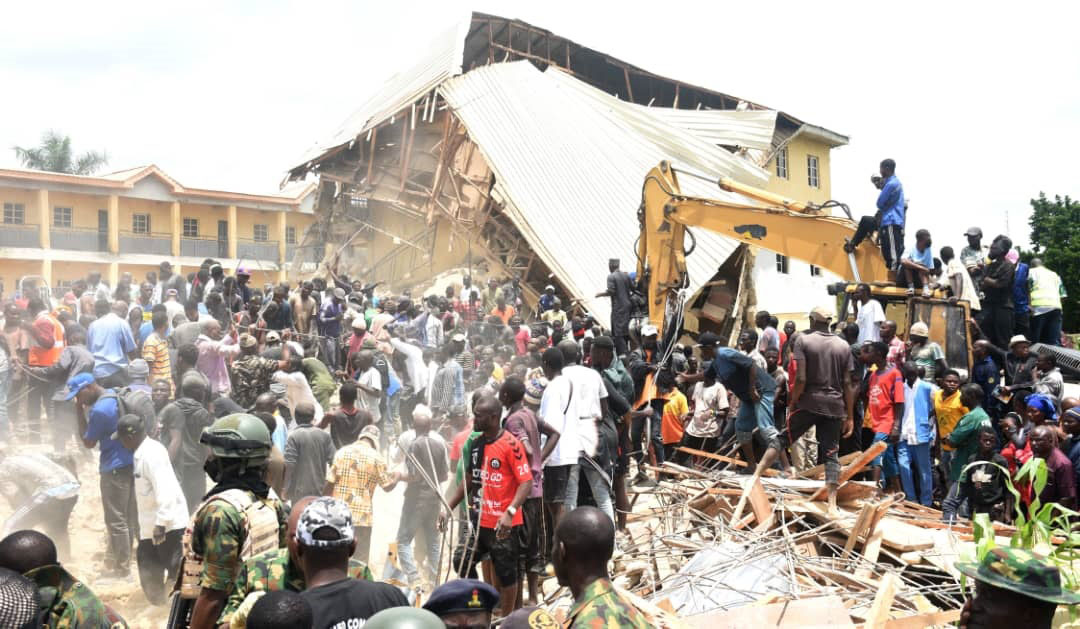
Nigeria experienced 135 building collapse incidents and at least 26 deaths between 2022 and 2024, with the most recent incident occurring in Kubwa, a suburb in the Federal Capital Territory, Abuja, a report by the Building Collapse Prevention Guild stated.
BCPG is a professional organisation in Nigeria that aims to prevent the collapse of buildings and promote safe and sustainable building practices nationwide.
The guild is made up of experts in the fields of building construction, architecture, engineering, and other related professions.
This recent trend of building collapse incidents has raised concerns about the safety and integrity of structures across the country.
BCPG stated that the first building collapse in Nigeria occurred in October 1974 in Oyo State, resulting in 27 deaths. Since then, there have been numerous incidents, including the tallest building collapse in Lagos on November 1, 2021, which killed 52 people.
The guild stated that in 2022, a record 62 building collapse cases were reported nationwide, with Lagos accounting for 20 incidents. The following year, 2023, saw 52 recorded collapses, with Lagos leading again with 17 incidents.
A building collapse occurred on May 30, 2024, on Lagos Island, when a four-story structure crumbled, entrapping an unknown number of individuals.
As of 2024, there have been 17 recorded building collapse cases, with Lagos having five, Anambra having three, and Kano, Niger, and Plateau having one each.
Investigations by the guild revealed that professional ineptitude, including excessive loading, use of substandard materials, faulty design, poor workmanship, and weak foundation, contributed significantly to the collapses.
The frequent occurrence of building collapse cases in Nigeria has raised concerns about the need for stricter enforcement of building codes and regulations to prevent such incidents and protect lives.
The Council of Registered Builders of Nigeria has called for sanctions on developers responsible for the recent collapse of buildings in Abuja, following three collapses in three days.
Chairman of the Council, Dr Samson Opaluwah, blamed government negligence in enforcing laws and regulations and demanded thorough investigations and punishment of culprits.
He said, “This collapse, unfortunately, has continued to happen, especially in areas that we can refer to as urban centres. Centres where professionals and professionalism should be extolled to the highest.
“The challenge we have now is government enforcement of its laws. We need to punish those who have been found wanting in the past.
“In all the published reports and investigations done by the FCT, we have not seen any advertised punishment to those found wanting.”
He insisted that until measures were put in place to punish offenders, the situation would remain the same.
“Every building that collapses has a reason why it collapsed. And if the reason is human error, that error has to be addressed. If it was due to negligence, poor conduct, or misbehaviour, then there should be punishments and sanctions. And that is what we stand for as a council. We stand for punishing culpable individuals,” he stated.













